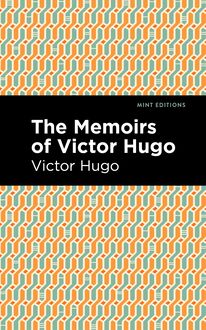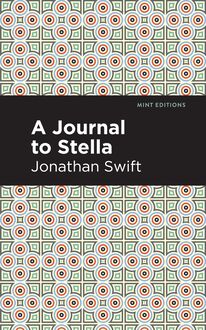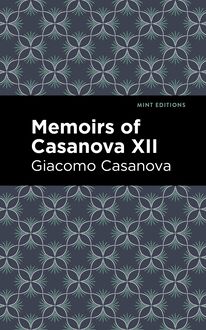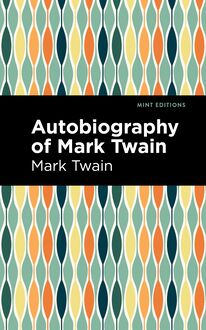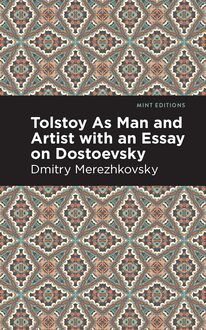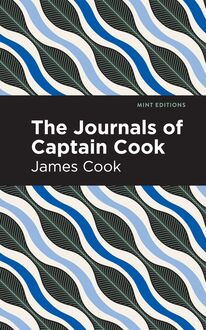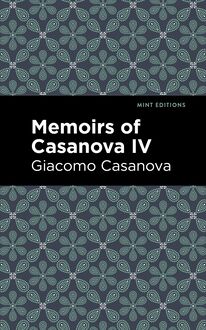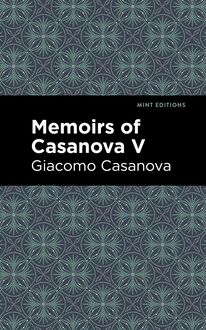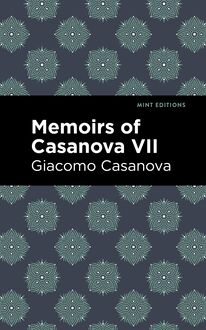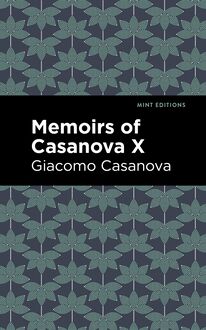-
 Univers
Univers
-
 Ebooks
Ebooks
-
 Livres audio
Livres audio
-
 Presse
Presse
-
 Podcasts
Podcasts
-
 BD
BD
-
 Documents
Documents
-
- Cours
- Révisions
- Ressources pédagogiques
- Sciences de l’éducation
- Manuels scolaires
- Langues
- Travaux de classe
- Annales de BEP
- Etudes supérieures
- Maternelle et primaire
- Fiches de lecture
- Orientation scolaire
- Méthodologie
- Corrigés de devoir
- Annales d’examens et concours
- Annales du bac
- Annales du brevet
- Rapports de stage
La lecture à portée de main
Vous pourrez modifier la taille du texte de cet ouvrage
Découvre YouScribe en t'inscrivant gratuitement
Je m'inscrisDécouvre YouScribe en t'inscrivant gratuitement
Je m'inscrisEn savoir plus
Vous pourrez modifier la taille du texte de cet ouvrage
En savoir plus

Description
Memoirs of Casanova (1792) is the autobiography of Italian adventure and socialite Giacomo Casanova. Written at the end of his life, the Memoirs capture the experiences of one of Europe’s most notorious figures, a man whose escapades as a gambler, womanizer, and socialite are matched only by his unique gift for sharing them with the world. More than perhaps any other man, Casanova sought to emulate the lessons of the Enlightenment on the level of everyday life, a sentiment captured perfectly in the opening sentence of his Memoirs: “I will begin with this confession: whatever I have done in the course of my life, whether it be good or evil, has been done freely; I am a free agent.”Memoirs of Casanova Volume II covers the young adulthood of Giacomo Casanova. Having excelled in his study of law at the University of Padua, Casanova embarks on an ill-fated career as a cleric. Drawn further toward the life of a dandy than that of a man of God, he moves within some of Venice’s highest social circles while womanizing and developing an addiction to gambling. After being forced to leave the seminary due to a debt-related imprisonment, Casanova manages to gain employment with a powerful Bishop in Rome. But his taste for freedom and fast-living proves much too strong, and soon ends his religious career for good. With a beautifully designed cover and professionally typeset manuscript, this edition of Giacomo Casanova’s Memoirs of Casanova is a classic of European literature reimagined for modern readers.
Sujets
Informations
| Publié par | Mint Editions |
| Date de parution | 29 juin 2021 |
| Nombre de lectures | 1 |
| EAN13 | 9781513286860 |
| Langue | English |
| Poids de l'ouvrage | 2 Mo |
Informations légales : prix de location à la page 0,0400€. Cette information est donnée uniquement à titre indicatif conformément à la législation en vigueur.
Extrait
Memoirs of Casanova Volume II
Giacomo Casanova
Memoirs of Casanova Volume II was first published in 1902.
This edition published by Mint Editions 2021.
ISBN 9781513281841 | E-ISBN 9781513286860
Published by Mint Editions®
minteditionbooks.com
Publishing Director: Jennifer Newens
Design & Production: Rachel Lopez Metzger
Project Manager: Micaela Clark
Translated By: Arthur Machen
Typesetting: Westchester Publishing Services
C ONTENTS
I. My Misfortunes in Chiozza—Father Stephano—The Lazzaretto at Ancona—The Greek Slave—My Pilgrimage to Our Lady of Loretto—I Go to Rome on Foot, and From Rome to Naples to Meet the Bishop—I Cannot Join Him—Good Luck Offers Me the Means of Reaching Martorano, Which Place I Very Quickly Leave to Return to Naples
II. My Stay in Naples; It is Short but Happy—Don Antonio Casanova—Don Lelio Caraffa—I Go to Rome in Very Agreeable Company, and Enter the Service of Cardinal Acquaviva—Barbara—Testaccio—Frascati
III. Benedict XIV—Excursion to Tivoli—Departure of Lucrezia—The Marchioness G.—Barbara Dalacqua—My Misfortunes—I Leave Rome
IV. My Short But Rather Too Gay Visit to Ancona—Cecilia, Marina, Bellino—The Greek Slave of the Lazzaretto—Bellino Discovers Himself
V. Bellino’s History—I am Put Under Arrest—I Run Away Against My Will—My Return to Rimini, and My Arrival in Bologna
I
M Y M ISFORTUNES IN C HIOZZA —F ATHER S TEPHANO —T HE L AZZARETTO AT A NCONA —T HE G REEK S LAVE —M Y P ILGRIMAGE TO O UR L ADY OF L ORETTO —I G O TO R OME ON F OOT , AND F ROM R OME TO N APLES TO M EET THE B ISHOP —I C ANNOT J OIN H IM —G OOD L UCK O FFERS M E THE M EANS OF R EACHING M ARTORANO , W HICH P LACE I V ERY Q UICKLY L EAVE TO R ETURN TO N APLES
The retinue of the ambassador, which was styled “grand,” appeared to me very small. It was composed of a Milanese steward, named Carcinelli, of a priest who fulfilled the duties of secretary because he could not write, of an old woman acting as housekeeper, of a man cook with his ugly wife, and eight or ten servants.
We reached Chiozza about noon. Immediately after landing, I politely asked the steward where I should put up, and his answer was:
“Wherever you please, provided you let this man know where it is, so that he can give you notice when the peotta is ready to sail. My duty,” he added, “is to leave you at the lazzaretto of Ancona free of expense from the moment we leave this place. Until then enjoy yourself as well as you can.”
The man to whom I was to give my address was the captain of the peotta. I asked him to recommend me a lodging.
“You can come to my house,” he said, “if you have no objection to share a large bed with the cook, whose wife remains on board.”
Unable to devise any better plan, I accepted the offer, and a sailor, carrying my trunk, accompanied me to the dwelling of the honest captain. My trunk had to be placed under the bed which filled up the room. I was amused at this, for I was not in a position to be over-fastidious, and, after partaking of some dinner at the inn, I went about the town. Chiozza is a peninsula, a sea-port belonging to Venice, with a population of ten thousand inhabitants, seamen, fishermen, merchants, lawyers, and government clerks.
I entered a coffee-room, and I had scarcely taken a seat when a young doctor-at-law, with whom I had studied in Padua, came up to me, and introduced me to a druggist whose shop was near by, saying that his house was the rendezvous of all the literary men of the place. A few minutes afterwards, a tall Jacobin friar, blind of one eye, called Corsini, whom I had known in Venice, came in and paid me many compliments. He told me that I had arrived just in time to go to a picnic got up by the Macaronic academicians for the next day, after a sitting of the academy in which every member was to recite something of his composition. He invited me to join them, and to gratify the meeting with the delivery of one of my productions. I accepted the invitation, and, after the reading of ten stanzas which I had written for the occasion, I was unanimously elected a member. My success at the picnic was still greater, for I disposed of such a quantity of macaroni that I was found worthy of the title of prince of the academy.
The young doctor, himself one of the academicians, introduced me to his family. His parents, who were in easy circumstances, received me very kindly. One of his sisters was very amiable, but the other, a professed nun, appeared to me a prodigy of beauty. I might have enjoyed myself in a very agreeable way in the midst of that charming family during my stay in Chiozza, but I suppose that it was my destiny to meet in that place with nothing but sorrows. The young doctor forewarned me that the monk Corsini was a very worthless fellow, despised by everybody, and advised me to avoid him. I thanked him for the information, but my thoughtlessness prevented me from profiting by it. Of a very easy disposition, and too giddy to fear any snares, I was foolish enough to believe that the monk would, on the contrary, be the very man to throw plenty of amusement in my way.
On the third day the worthless dog took me to a house of ill-fame, where I might have gone without his introduction, and, in order to shew my mettle, I obliged a low creature whose ugliness ought to have been a sufficient antidote against any fleshly desire. On leaving the place, he brought me for supper to an inn where we met four scoundrels of his own stamp. After supper one of them began a bank of faro, and I was invited to join in the game. I gave way to that feeling of false pride which so often causes the ruin of young men, and after losing four sequins I expressed a wish to retire, but my honest friend, the Jacobin contrived to make me risk four more sequins in partnership with him. He held the bank, and it was broken. I did not wish to play any more, but Corsini, feigning to pity me and to feel great sorrow at being the cause of my loss, induced me to try myself a bank of twenty-five sequins; my bank was likewise broken. The hope of winning back my money made me keep up the game, and I lost everything I had.
Deeply grieved, I went away and laid myself down near the cook, who woke up and said I was a libertine.
“You are right,” was all I could answer.
I was worn out with fatigue and sorrow, and I slept soundly. My vile tormentor, the monk, woke me at noon, and informed me with a triumphant joy that a very rich young man had been invited by his friends to supper, that he would be sure to play and to lose, and that it would be a good opportunity for me to retrieve my losses.
“I have lost all my money. Lend me twenty sequins.”
“When I lend money I am sure to lose; you may call it superstition, but I have tried it too often. Try to find money somewhere else, and come. Farewell.”
I felt ashamed to confess my position to my friend, and sending for, a money-lender I emptied my trunk before him. We made an inventory of my clothes, and the honest broker gave me thirty sequins, with the understanding that if I did not redeem them within three days all my things would become his property. I am bound to call him an honest man, for he advised me to keep three shirts, a few pairs of stockings, and a few handkerchiefs; I was disposed to let him take everything, having a presentiment that I would win back all I had lost; a very common error. A few years later I took my revenge by writing a diatribe against presentiments. I am of opinion that the only foreboding in which man can have any sort of faith is the one which forbodes evil, because it comes from the mind, while a presentiment of happiness has its origin in the heart, and the heart is a fool worthy of reckoning foolishly upon fickle fortune.
I did not lose any time in joining the honest company, which was alarmed at the thought of not seeing me. Supper went off without any allusion to gambling, but my admirable qualities were highly praised, and it was decided that a brilliant fortune awaited me in Rome. After supper there was no talk of play, but giving way to my evil genius I loudly asked for my revenge. I was told that if I would take the bank everyone would punt. I took the bank, lost every sequin I had, and retired, begging the monk to pay what I owed to the landlord, which he promised to do.
I was in despair, and to crown my misery I found out as I was going home that I had met the day before with another living specimen of the Greek woman, less beautiful but as perfidious. I went to bed stunned by my grief, and I believe that I must have fainted into a heavy sleep, which lasted eleven hours; my awaking was that of a miserable being, hating the light of heaven, of which he felt himself unworthy, and I closed my eyes again, trying to sleep for a little while longer. I dreaded to rouse myself up entirely, knowing that I would then have to take some decision; but I never once thought of returning to Venice, which would have been the very best thing to do, and I would have destroyed myself rather than confide my sad position to the young doctor. I was weary of my existence, and I entertained vaguely some hope of starving where I was, without leaving my bed. It is certain that I should not have got up if M. Alban, the master of the peotta, had not roused me by calling upon me and informing me that the boat was ready to sail.
The man who is delivered from great perplexity, no matter by what means, feels himself relieved. It seemed to me that Captain Alban had come to point out the only thing I could possibly do; I dressed myself in haste, and tying all my worldly possessions in a handkerchief I went on board. Soon afterwards we left the shore, and in the morning we cast anchor in Orsara, a seaport of Istria. We all landed to visit the city, which would more properly be called a village. It belongs to the Pope, the Republic of Venice having abandoned it to the Holy See.
A young mon
-
 Univers
Univers
-
 Ebooks
Ebooks
-
 Livres audio
Livres audio
-
 Presse
Presse
-
 Podcasts
Podcasts
-
 BD
BD
-
 Documents
Documents
-
Jeunesse
-
Littérature
-
Ressources professionnelles
-
Santé et bien-être
-
Savoirs
-
Education
-
Loisirs et hobbies
-
Art, musique et cinéma
-
Actualité et débat de société
-
Jeunesse
-
Littérature
-
Ressources professionnelles
-
Santé et bien-être
-
Savoirs
-
Education
-
Loisirs et hobbies
-
Art, musique et cinéma
-
Actualité et débat de société
-
Actualités
-
Lifestyle
-
Presse jeunesse
-
Presse professionnelle
-
Pratique
-
Presse sportive
-
Presse internationale
-
Culture & Médias
-
Action et Aventures
-
Science-fiction et Fantasy
-
Société
-
Jeunesse
-
Littérature
-
Ressources professionnelles
-
Santé et bien-être
-
Savoirs
-
Education
-
Loisirs et hobbies
-
Art, musique et cinéma
-
Actualité et débat de société
- Cours
- Révisions
- Ressources pédagogiques
- Sciences de l’éducation
- Manuels scolaires
- Langues
- Travaux de classe
- Annales de BEP
- Etudes supérieures
- Maternelle et primaire
- Fiches de lecture
- Orientation scolaire
- Méthodologie
- Corrigés de devoir
- Annales d’examens et concours
- Annales du bac
- Annales du brevet
- Rapports de stage
